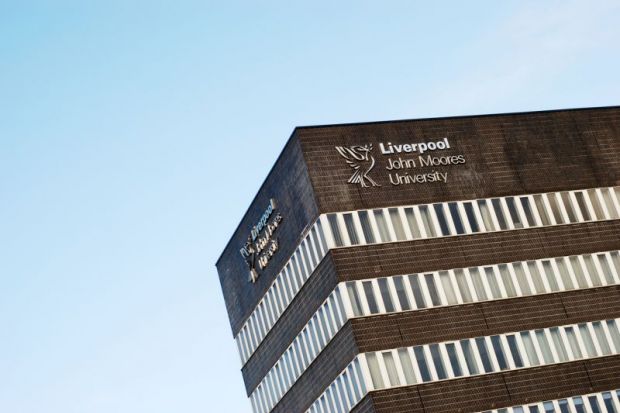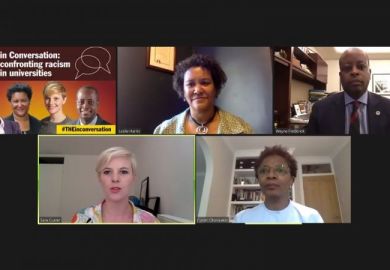Liverpool John Moores University has apologised for asking staff to check with its communications team before using institutional social media accounts to show support for the Black Lives Matter movement.
The email, sent by head of corporate communications Ben Jones to LJMU social media account holders, urged “caution” when it came to liking, sharing or retweeting when attempting to engage with or show support for issues related to Black Lives Matter and slavery commemorations.
“The university through its main accounts is doing that, with the agreement and sign-off [of] the [vice-chancellor] and others…If you feel you want or need to engage in any way on these issues, please check that with me first,” the email said.
Times Higher Education understands that a number of staff were angered and upset by what they saw as an act of censorship.
In response, Mr Jones sent a subsequent email apologising for the “pain, concern and anger” he had caused.
“I know that my email has been interpreted as an attempt to gag or censor comments from LJMU staff on the issue of Black Lives Matter. The fact that my intention in sending this email about LJMU accounts was in no way to gag or censor anyone does not matter. That is how it came across,” he writes.
“I realise that my email – however intended – has caused a lot of upset and I am really sorry for that. I hope that this incident will not detract from the excellent work being done by colleagues right across the university on Black Lives Matter which I fully support.”
Mr Jones told THE that the original email was “a well-meaning but poorly delivered attempt to ensure that we had a consistent message from the university via our LJMU social media accounts”, centred upon a statement that vice-chancellor Ian Campbell issued at the start of June.
The message was intended for those using faculty, school, course or department accounts, as well as professional service teams within the university, and was not an attempt to stop staff using their personal accounts to engage with the issue, Mr Jones said.
Register to continue
Why register?
- Registration is free and only takes a moment
- Once registered, you can read 3 articles a month
- Sign up for our newsletter
Subscribe
Or subscribe for unlimited access to:
- Unlimited access to news, views, insights & reviews
- Digital editions
- Digital access to THE’s university and college rankings analysis
Already registered or a current subscriber? Login








